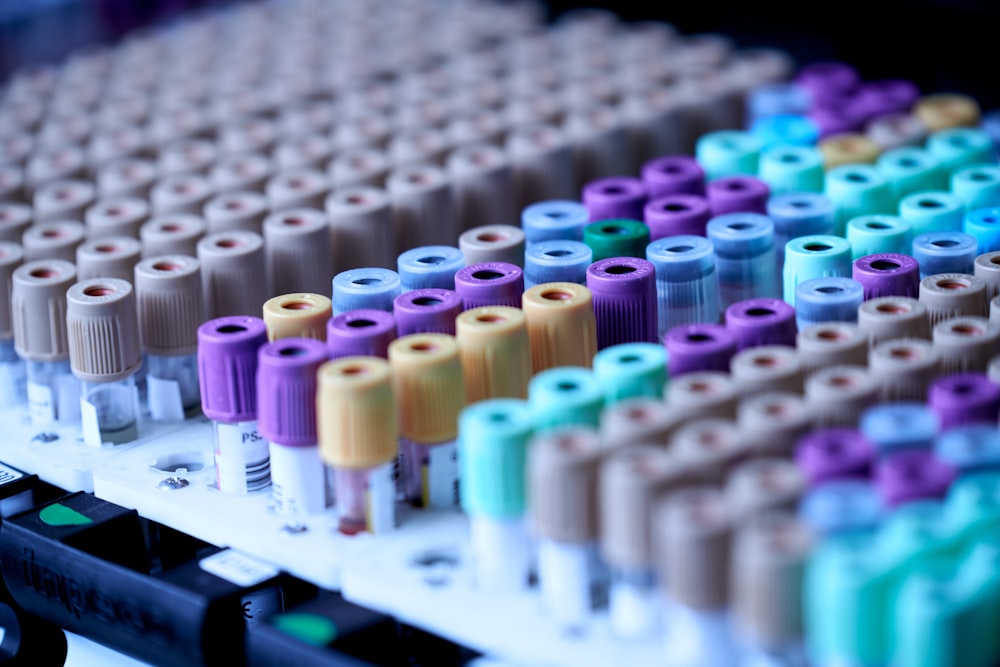
Eating foods you’re sensitive to can cause you great discomfort. It’s important to understand the difference between an IgG food sensitivity and an IgE food allergy, because IgE and IgG food reactions differ greatly from each other.
A food allergy involves an immunologic hypersensitivity (IgE reaction). This means that a food allergy relates to an Immunoglobulin E (IgE) reaction. This type of food reaction is typically an immediate, severe response to a substance you’re allergic to that has entered the body.
A food sensitivity involves an immunologic delayed reaction to food. These are IgG and IgA reactions. When you have a food sensitivity, the symptoms will be much less severe than a food allergy, and often have a delayed onset rather than experiencing the symptoms immediately after eating the food. When you have an IgG food sensitivity, this type of food reaction is from an Immunoglobulin G (IgG) reaction, where food sensitivity symptoms are less severe than food allergy symptoms, but can last longer.
The IgG antibodies can cause inflammatory processes in the body. IgE food reactions, however, are food allergy reactions that can cause severe itching, hives, and swelling. The latter can require immediate medical attention, while an IgG food sensitivity typically just causes at-home discomfort.

What Exactly is an IgG Food Sensitivity?
To understand what an IgG food sensitivity is, you first have to understand what immunoglobulins are. Immunoglobulins (also known as antibodies) are proteins made by our immune system to help us fight antigens such as viruses, bacteria, and toxins. These antibodies are able to respond to other foreign substances entering our bodies such as dust, pollen, and food ingredients.
Our bodies make different immunoglobulins to combat different antigens or “invaders”. There are 5 classes of immunoglobulins, and IgG is one of them. IgG (Immunoglobulin G) food reactions are delayed food reactions. They are most often referred to as “food sensitivities”.
Immunoglobulin-G (IgG) antibodies to certain foods contribute to the delayed-response food intolerances. These are different from IgE-mediated food allergies, as you don’t have the severe, immediate reaction, and the symptoms are far more diverse.
Testing for IgG reactivity generally involves an enzyme-linked immunosorbent assay (ELISA) test. You receive a blood collection kit for a finger prick or shoulder prick blood sample, which is collected by a tiny absorbent “wand”. You then send your sample back to the lab so it can be tested by experts.
In the lab, your blood is exposed to antigens from potential allergenic foods to determine whether there is a reaction. If so, your antibodies will bind to the foods’ antigens.
Possible Symptoms of a Food Sensitivity
Before you get an IgG food sensitivity test (IgG reactivity test) done on yourself, you might already suspect a food sensitivity due to regularly experiencing certain uncomfortable symptoms.
Symptoms of a food sensitivity can take place immediately after you eat the food you’re sensitive to, or up to 72 hours after eating the problematic food. Symptoms of an food sensitivity reaction can include the following:
- Bloating
- Gas
- Acid reflux
- Headaches
- Nausea
- Diarrhea
- Constipation
- Inflammation such as joint pain
- Mood changes such as anxiety, irritability or depression
- Fatigue
- Lethargy or weakness
- Shortness of breath
- Brain fog
Remember that these food sensitivity symptoms can be long-lasting and uncomfortable, although typically not severe enough to require hospitalization. Any severe symptoms could be a sign of a food allergy or a different cause altogether, and you should seek medical attention immediately if your symptoms are severe or debilitating.

IgG Food Sensitivity Test
An IgG food sensitivity test detects IgG antibodies in your blood against specific food allergens. A positive test indicates that you were exposed to the food and your immune system reacted negatively to the food.
If you are symptomatic with high reactivity to certain problematic foods, the food sensitivity test in the form of an at-home blood test can potentially help to narrow down the offending foods. Once the test results confirm potential food sensitivities, you can try an elimination diet where you completely cut out these foods, and see if your symptoms resolve.
Treating a Food Sensitivity
The first step in treating food sensitivities is discovering you have one. This is why it’s important to get a food sensitivity test done, in the form of an at-home blood test. You can also discover if you’re genetically more likely to have certain food sensitivities by reading your genetic nutrition report from CircleDNA, since DNA tests can reveal some information about food sensitivities.
Many people with IgG food sensitivities do not realize they have food sensitivities. These food sensitivities can go undiagnosed their whole lives. The reason for this is because many of the symptoms of IgG food sensitivities such as bloating, fatigue and brain fog can be attributed to other factors. You need a food sensitivity test to find out if the potential underlying cause of your symptoms is a food sensitivity. Elimination diets are helpful in the treatment of IgG food reactions. By eliminating the IgG-positive foods, many people will notice reduced IBS symptoms, less discomfort, more energy, higher productivity and a better mood. This is why modifying your diet and cutting out foods you’re sensitive to can improve your overall health and wellness.







This Post Has 2 Comments
Comments are closed.